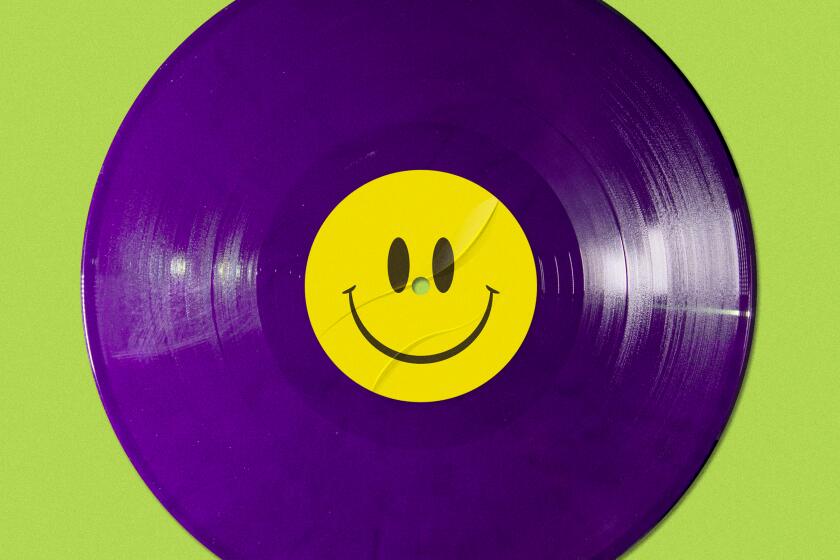Go
We drive a lot. We don’t go anywhere in particular; we just drive. Or so it seems. To tell the real truth, Victor does the driving. I sit in the passenger seat and watch the white line on the side of the road.
Victor’s got this 1976 Toyota truck, an SR5 longbed with over 172,000 miles on it, and it seems like we add another 500 miles every weekend, driving around, trying to get from one place to another. The body’s all right if you don’t mind avocado green, but being in the cab is like sitting inside an emptied-out vacuum cleaner bag; you can see the dust floating around in the glare. Late in the evening, it gets pretty cold from the air blowing in the broken back window. The middle of the steering wheel is smashed from where Victor put his fist through it before we met. We’ve gotten pulled over a few times. The officer gives Victor a fix-it ticket while he’s waiting to find out if the truck is stolen; then he comes around to my side to see if I’m all right, if I’m there of my own free will.
It takes about 20 minutes to go anywhere in Los Angeles, not including parking. I’m no mathematician, but if you’ve got three errands to run, that’s a slow hour in traffic, not including the errands themselves, which, in addition to the time involved, always cost money. If you sleep late, you may as well tack on an extra 15 minutes to each trip. Victor and I, we always sleep late.
Sometimes, after we’ve spent a dusty Saturday afternoon in the truck, I have this dream: I’m driving on a long, curved freeway overpass, and when I get to the deepest part of the arc, I drive clear off the asphalt, into the air. I don’t lose control of the car or anything. I don’t even crash through the retaining wall; I just miss the curve and keep driving straight until I realize that I’m not on the road anymore, that there’s nothing beneath the wheels. That always wakes me up.
Most trips, we take my car. I have a white Honda Civic, very practical. It’s about 3 years old; my stepfather, Wilson, picked it out right before my last car fell apart. I make the monthly payments. Lately, though, we’ve needed a truck. There’s been a lot of moving.
I once read a list of 10 things that cause the most stress for people: death, divorce, marriage, moving; I don’t remember the rest, but last year there were two deaths, three moves, four boyfriends, three breakups, one earthquake and not nearly enough money to make up for it all. There was also an engagement and a wedding, neither of them mine, just like the fortuneteller predicted.
I needed a vacation, no adventure, just a vacation. No driving. I wanted to sit on warm white sand until I got bored. I started cutting ads out of the Sunday Times. My refrigerator was plastered with them. Maui for $33 a month: eight days including plane fare, garden-view room, continental breakfast orientation, fresh-flower lei greeting, transfers, taxes and a tote bag. It seemed like a good deal, but neither Victor nor I had $33.
All the pictures in the magazine advertising supplements made the Hawaiian water seem so blue, so warm, so inviting. They showed people swimming, snorkeling, scuba diving; underwater coral forests; and strangely striped fish.
I was driving home from the museum, listening to National Public Radio. They were talking about this tiny instrument that tells you exactly where you are anywhere on earth, longitude and latitude, within a couple of meters. It’s called a Global Positioning System. Apparently, there are these satellites in the sky that figure out all the math and then tell you where you are. I don’t know how this would help a person, exactly: I already know where I am, and I’m not in Hawaii.
The next day, I got a letter from the local public radio station. They knew I’d been listening all year for free; it was about their subscription-drive sweepstakes. One of the prizes was a weeklong stay in Hawaii: Enjoy the serenity of your own private lanai, the beauty of luxurious grounds perfumed by gardens of the tropics and the tranquility of unspoiled white-sand beaches. I sent in $5 and wondered how many times we could get to Hawaii on 172,000 miles.
My mother went once, the only time she slept away from Wilson until he died. She went with the aunts; they saved up for months. Aunt Estelle fell asleep the instant they reached the hotel. “What’s the matter with you?” my mother demanded. Turns out the doctor had given her a prescription the day before they’d left. My mother flushed the Benadryl down the toilet and said, “Too bad about your ringworm. I didn’t come all the way to Hawaii to sit in a hotel room.” They were there a week. Aunt Estelle came home, her body covered with red circles.
Libby and Hugo are there now, in Oahu, on their honeymoon. Victor is remodeling their bathroom while they are gone, and we are driving back from the Valley. The fog is settling in the pass.
“Keep your eye on the white line,” Wilson used to tell me, and always, driving at night or in a thick fog, on a deeply curved freeway overpass, I’ve followed his advice.
Victor and I are deep in the mountains now; we can see the Getty with its imported stone and elegant lighting. “Victor,” I ask suddenly, “how do you drive in low visibility?”
Not taking his eyes off the road, he replies, “Look for the white line; otherwise you get blinded from the lights of the oncoming cars.”
As we approach the off-ramp for Mar Vista, the cool night air blows in through the window. There is no dust in the darkness.
Victor’s truck got stolen, of course. A truck gets to be that old, and it’s just a matter of time before it gets taken. This year seemed right. We’d been out, working in the garden, when they left the message: “We found your truck. Someone crashed it into a tree. It’s been towed to the LAPD holding yard.”
It costs $150 to get it out, and miles of driving. Off the new Century Freeway, out in the middle of nowhere, nothing but gas plants and used auto-parts shops, down a narrow pitted driveway to a chain-link fence topped with circles of barbed wire. The place is a dirt lot filled with cars in various stages of disrepair—no tires, hoods missing, engines gone. A guard is sitting outside in a lounge chair next to a portable building that serves as the office. His head is shaved bare except for a tiny braid at the nape of his neck, and he’s wearing a heavy jacket because it can get fairly cold in March, even in Los Angeles.
He takes Victor and me to the truck, but the engine won’t turn over, so Victor crawls underneath while I wait in the Honda and watch the planes take off over LAX. We are under the flight path. They go fast, one after the other; it’s a busy place.
“I like watching them, too,” the guard says to me. “I sit in my chair and look over all night. It makes the time go.”
“I guess it does,” I say, and then, wondering, “Ever been to Hawaii?”
“Naw,” he says.
We look up at the sky. In another night, the moon will be full. The lights of the planes blink in the end-of-winter darkness, and Victor pulls himself up from under the truck. “It needs a new starter,” he says.
“Hey, why don’t you just come back tomorrow?” offers the guard. “I’m here until seven; they won’t know about the extra day.”
“Hey, thanks, I’ll see you then,” Victor says, as he climbs into the passenger side of my car, pressing dirt into the seat.
“Thanks for waiting, April,” he says, kissing me, and then: “I love you. Let’s go.”
And I drive through the gate and onto the dusty road, where there is no white line, and my eyes look up to see the white lights of the planes; they make a trail, and we drive, and we drive, and we drive, until we drive straight off the high overpass of the Century Freeway, through the air and into the Pacific, where the water washes over us until, finally, we are swimming with the striped fish in the deep, blue ocean.
Sign up for The Wild
We’ll help you find the best places to hike, bike and run, as well as the perfect silent spots for meditation and yoga.
You may occasionally receive promotional content from the Los Angeles Times.



